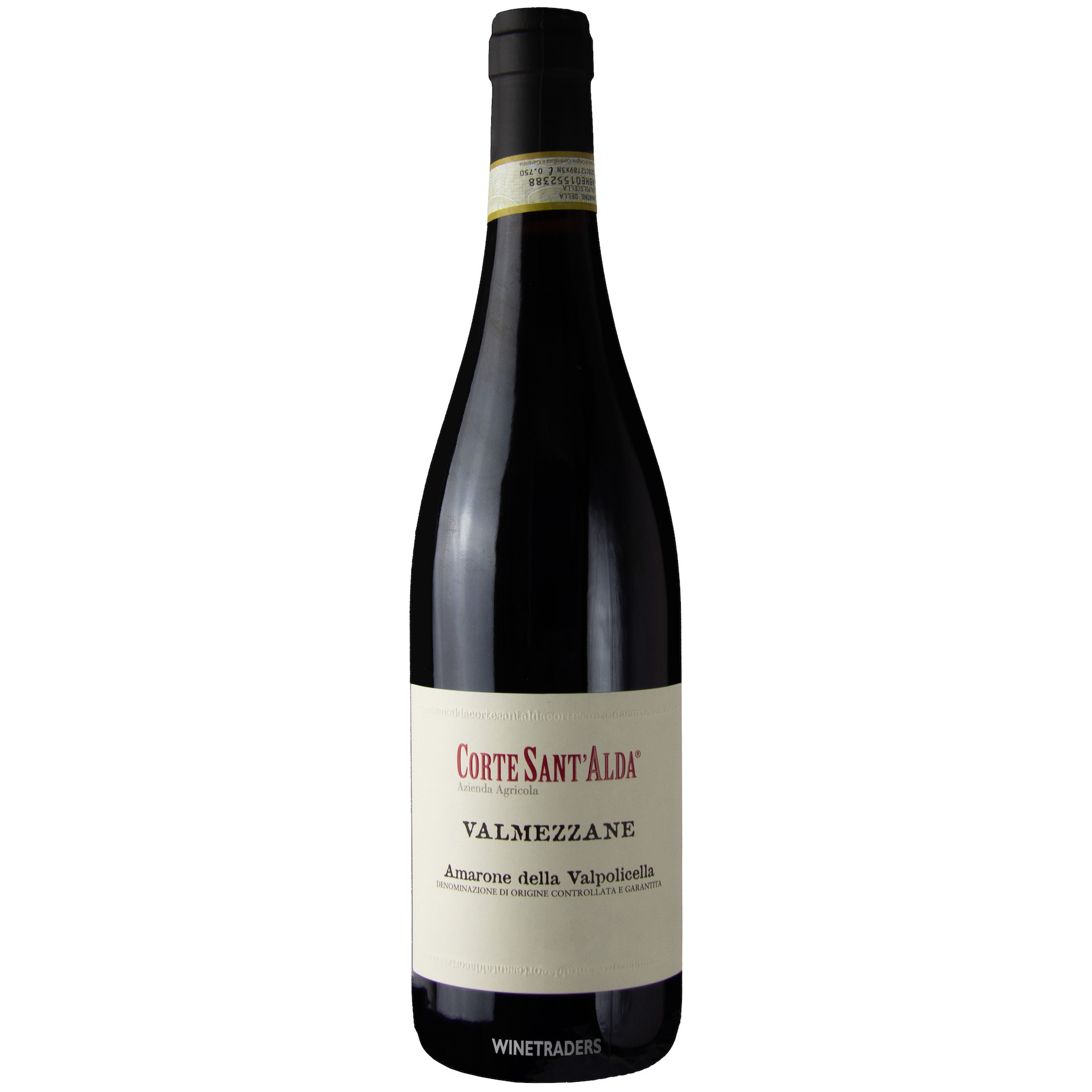
.png)
Amarone della Valpolicella DOCG 'Valmezzane'
Veneto, Italy
Amarone is the jewel of Valpolicella, made from partially dried grapes in a centuries-old tradition known as appassimento. At Corte Sant’Alda, grapes are hand-harvested from high-altitude sites and dried slowly through the winter months in well-ventilated lofts. Biodynamic farming and native-yeast fermentation ensure the resulting wine reflects both place and process with authenticity and power. Ageing takes place in large oak casks to enhance harmony and texture. Deep, concentrated notes of black cherry, fig, liquorice and bitter chocolate unfold across a full-bodied, expansive palate. Tannins are rich yet velvety, leading to a long, warming finish. A commanding red, perfect with game, aged Parmigiano or contemplative sipping.
Technical Sheet
.jpg)
The Producer
We have had the pleasure of working with Marinella Camerani for more than a two decades. During that time CSA has emerged from Valpolicella’s backwaters to take centre stage amongst the region’s most celebrated producers. In 2008 Gambero Rosso crowned Marinella her ‘Winemaker of the Year’, a fitting accolade for a woman whose vision and determination have established this estate at the forefront of Italian winemaking.
Fermentation for all the wines is in upright wooden tini and all are hand-plunged. Marinella’s vineyards are planted on the limestone-rich soils found in the Illasi valley. Here, the foothills of the Dolomites offer a steep SW exposure and excellent drainage. VSP is used throughout to facilitate ripening and reduce disease pressure. Corte Sant’Alda is the only estate in the Veneto to be certified both organic and biodynamic.
Each wine is utterly typical of its style: ‘Ca Fiui’ is young, zappy, fresh and vibrant, the Ripasso is richer and reflects its time in cherry-wood casks whilst the Amarone has the heft and density typical of wines made from concentrated grapes. Marinella is one of the few remaining producers to continue the ancient practice of air-drying all the grapes used in the Amarone and the Recioto. 35 tons of fruit have had the rotten berries removed. One by one. It’s an absurdly time-consuming process but the slow desiccation results in complexity rather than just concentration. The Recioto finishes its fermentation without filtration.

.jpg)
.jpg)
.jpg)
.jpg)
.jpg)
.jpg)
.png)
.png)
.png)